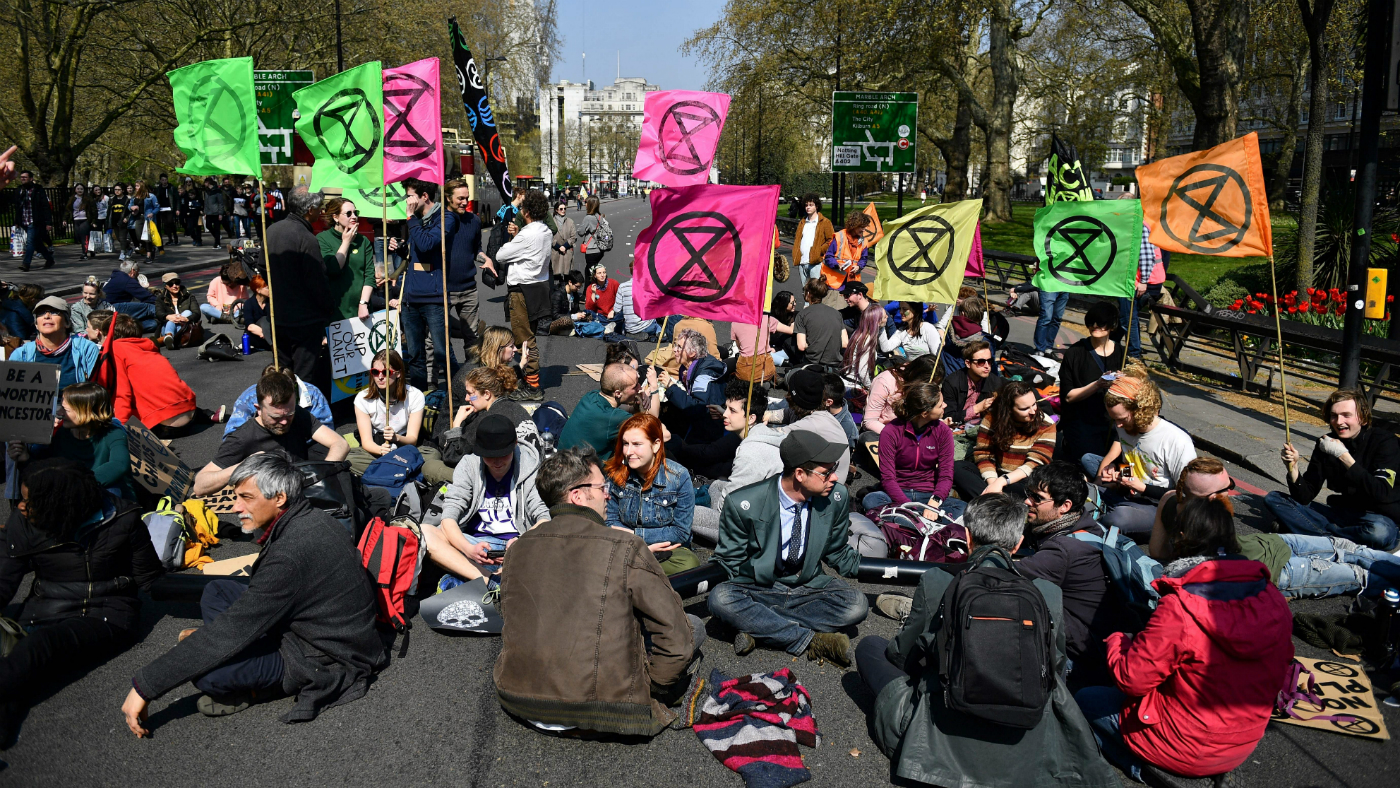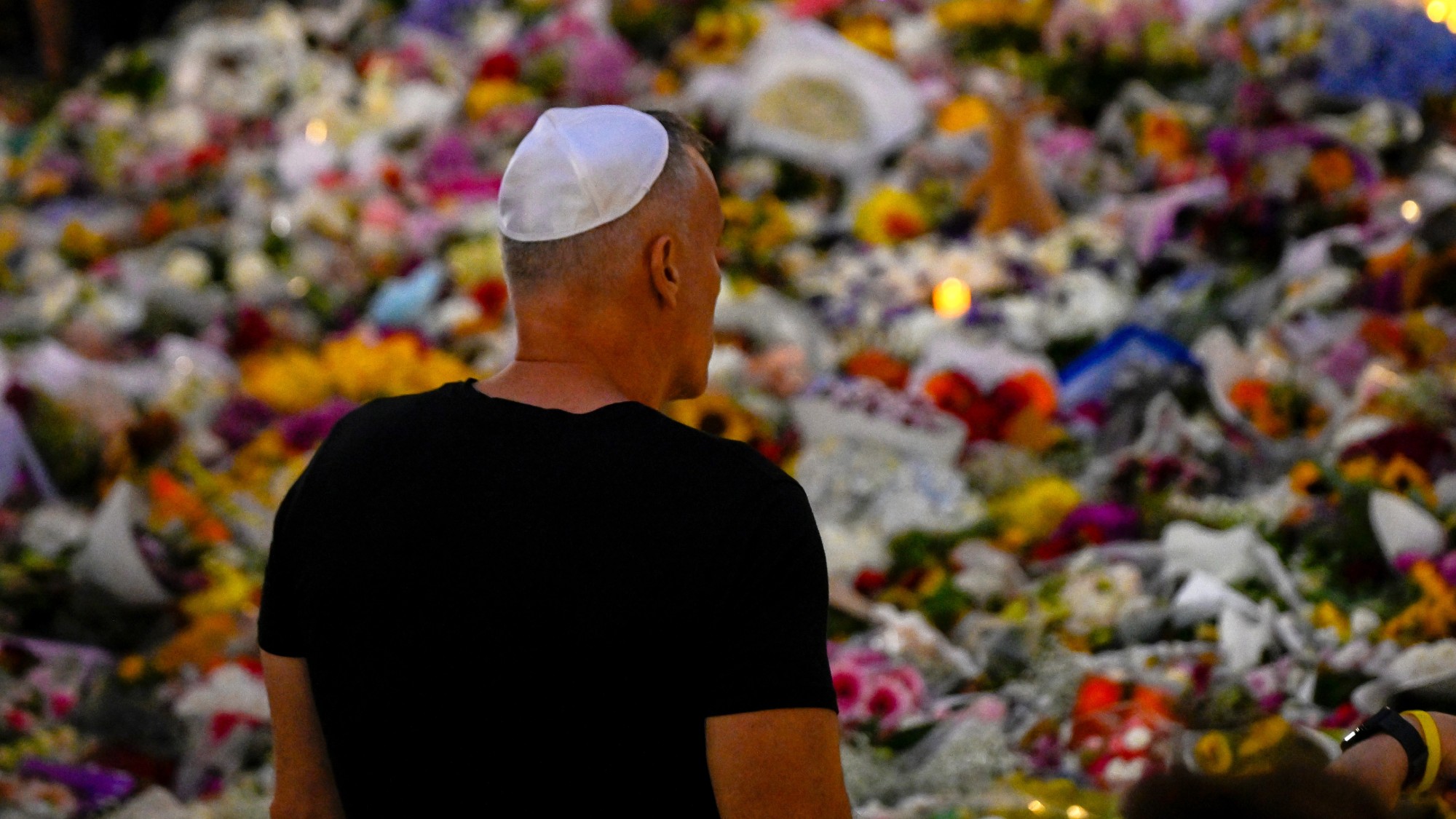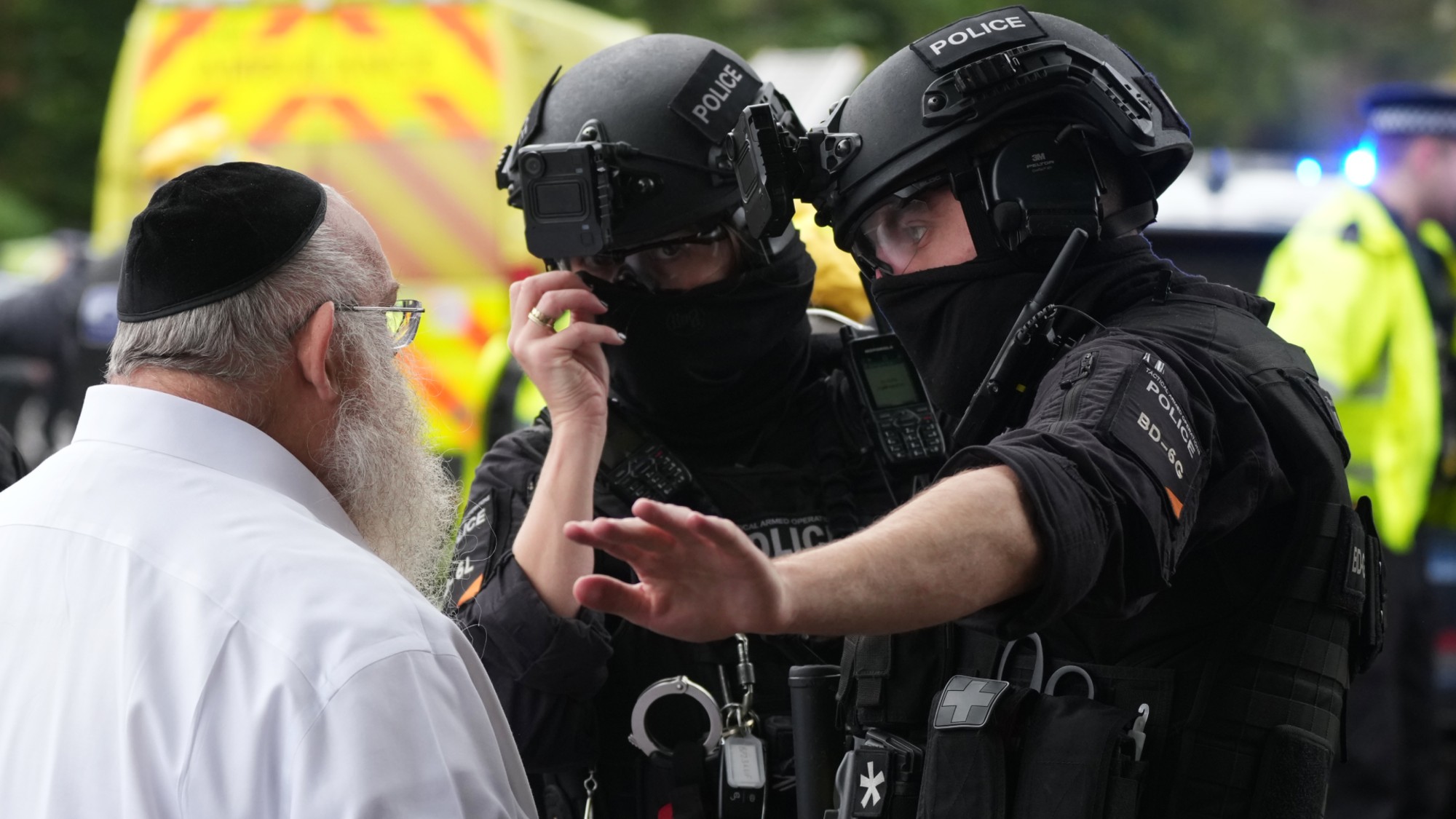How Extinction Rebellion was labelled an ‘extremist ideology’
Counterterrorism police sent out report about potential national security threat posed by the environmental group

A free daily email with the biggest news stories of the day – and the best features from TheWeek.com
You are now subscribed
Your newsletter sign-up was successful
Extinction Rebellion is calling for the publication of a secret report by UK counterterrorism specialists assessing the national security threat posed by the environmental group.
The confidential dossier on the protest organisation, also known as XR, was sent to regional counterterrorism units and “policing partners” nationwide, reports The Guardian.
Calling for the findings to be made public, an XR spokesperson said: “We all agree public safety is paramount. However, if [counterterrorism policing] is used as a blunt instrument, it is a threat to human rights.”
The Week
Escape your echo chamber. Get the facts behind the news, plus analysis from multiple perspectives.

Sign up for The Week's Free Newsletters
From our morning news briefing to a weekly Good News Newsletter, get the best of The Week delivered directly to your inbox.
From our morning news briefing to a weekly Good News Newsletter, get the best of The Week delivered directly to your inbox.
What is in the report?
The document, titled “Rising Up”, came from the Counter Terrorism Policing National Operations Centre (CTPNOC) and was produced in February 2019, less than six months after XR was formed.
Police say that counterterrorism chiefs commissioned the formal assessment because the group was attracting a “large following”.
The report - which was marked as sensitive - is believed to include details of XR’s influence and reach, whether the group attracts extremists and whether it could pose a threat to public safety.
A free daily email with the biggest news stories of the day – and the best features from TheWeek.com
Police officials “have declined to give any more detail about what it covered”, says The Guardian.
The UK’s senior national coordinator for counterterrorism, Deputy Assistant Commissioner Dean Haydon, told the newspaper: “When a protest group is gaining influence and beginning to attract a large following, it is necessary for policing to assess that group’s goals and methods to see whether they pose a security threat or are at risk of attracting extremists who might be a threat to the public.”
XR was deemed not to pose a threat, Haydon said.
What is an ‘extremist ideology’?
The Guardian revealed in January that XR had been labelled “extremist” on a separate document produced by counterterrorism police in the Southeast in November 2019.
According to the Daily Mail, the 12-page guide “was handed out to schools and hospitals as part of anti-extremism training”, and listed XR among groups with extremist ideologies that should be reported to the national Prevent anti-terrorism programme.
The document - titled “Safeguarding young people and adults from ideological extremism” - said that possible warnings signs may include people speaking in “strong or emotive terms about environmental issues like climate change, ecology, species extinction, fracking, airport expansion or pollution”.
Police officials subsequently apologised for including XR in the list and said the guide had been recalled.
What groups are considered extremist?
In the “Safeguarding” guide, XR was named alongside a pro-terrorist Islamist group and neo-Nazi terrorist organisations including National Action, which has been banned in the UK under the Terrorism Act since 2016.
Setting out its purpose, the guide said: “This document is designed to help you recognise when young people or adults may be vulnerable to extreme or violent ideologies.”
Among the other proscribed groups named in the guide was the militant Salafi jihadi network Al-Muhajiroun, banned in Britain since 2005.
Britain First, the English Defence League and For Britain were included under the heading “Cultural Nationalist Groups”, while Combat 18 and Sonnenkrieg Division joined National Action on the list of “White Supremacist Groups”.
XR was listed alongside Peta and Greenpeace under the heading “Animal Rights and Environmental Signs and Symbols Aid”.
Police has since admitted that XR is not extremist. Detective Chief Superintendent Kath Barnes, head of Counter Terrorism Policing South East, said: “The inclusion of Extinction Rebellion in this document was an error of judgment and we will now be reviewing all of the contents as a result.”
-
 How to Get to Heaven from Belfast: a ‘highly entertaining ride’
How to Get to Heaven from Belfast: a ‘highly entertaining ride’The Week Recommends Mystery-comedy from the creator of Derry Girls should be ‘your new binge-watch’
-
 The 8 best TV shows of the 1960s
The 8 best TV shows of the 1960sThe standout shows of this decade take viewers from outer space to the Wild West
-
 Microdramas are booming
Microdramas are boomingUnder the radar Scroll to watch a whole movie
-
 Why have homicide rates reportedly plummeted in the last year?
Why have homicide rates reportedly plummeted in the last year?Today’s Big Question There could be more to the story than politics
-
 How the ‘British FBI’ will work
How the ‘British FBI’ will workThe Explainer New National Police Service to focus on fighting terrorism, fraud and organised crime, freeing up local forces to tackle everyday offences
-
 How the Bondi massacre unfolded
How the Bondi massacre unfoldedIn Depth Deadly terrorist attack during Hanukkah celebration in Sydney prompts review of Australia’s gun control laws and reckoning over global rise in antisemitism
-
 Who is fuelling the flames of antisemitism in Australia?
Who is fuelling the flames of antisemitism in Australia?Today’s Big Question Deadly Bondi Beach attack the result of ‘permissive environment’ where warning signs were ‘too often left unchecked’
-
 ‘Stakeknife’: MI5’s man inside the IRA
‘Stakeknife’: MI5’s man inside the IRAThe Explainer Freddie Scappaticci, implicated in 14 murders and 15 abductions during the Troubles, ‘probably cost more lives than he saved’, investigation claims
-
 Ten years after Bataclan: how has France changed?
Ten years after Bataclan: how has France changed?Today's Big Question ‘Act of war’ by Islamist terrorists was a ‘shockingly direct challenge’ to Western morality
-
 Arsonist who attacked Shapiro gets 25-50 years
Arsonist who attacked Shapiro gets 25-50 yearsSpeed Read Cody Balmer broke into the Pennsylvania governor’s mansion and tried to burn it down
-
 Manchester synagogue attack: what do we know?
Manchester synagogue attack: what do we know?Today’s Big Question Two dead after car and stabbing attack on holiest day in Jewish year